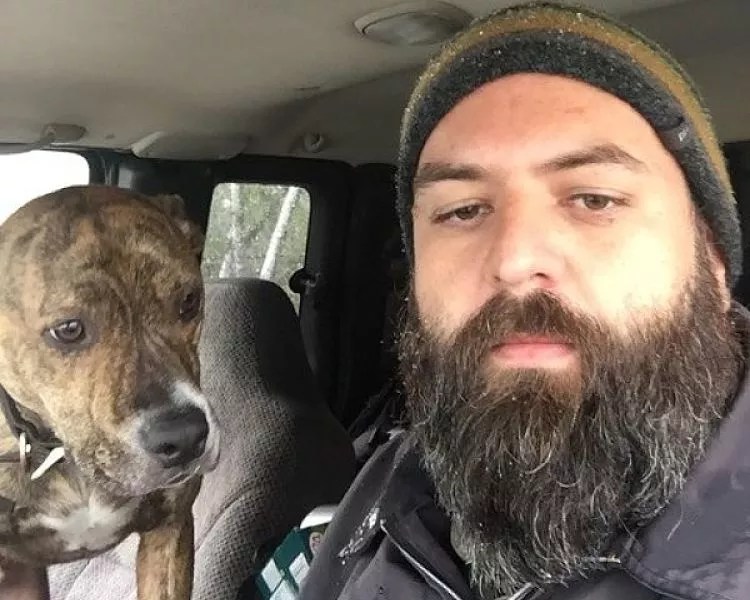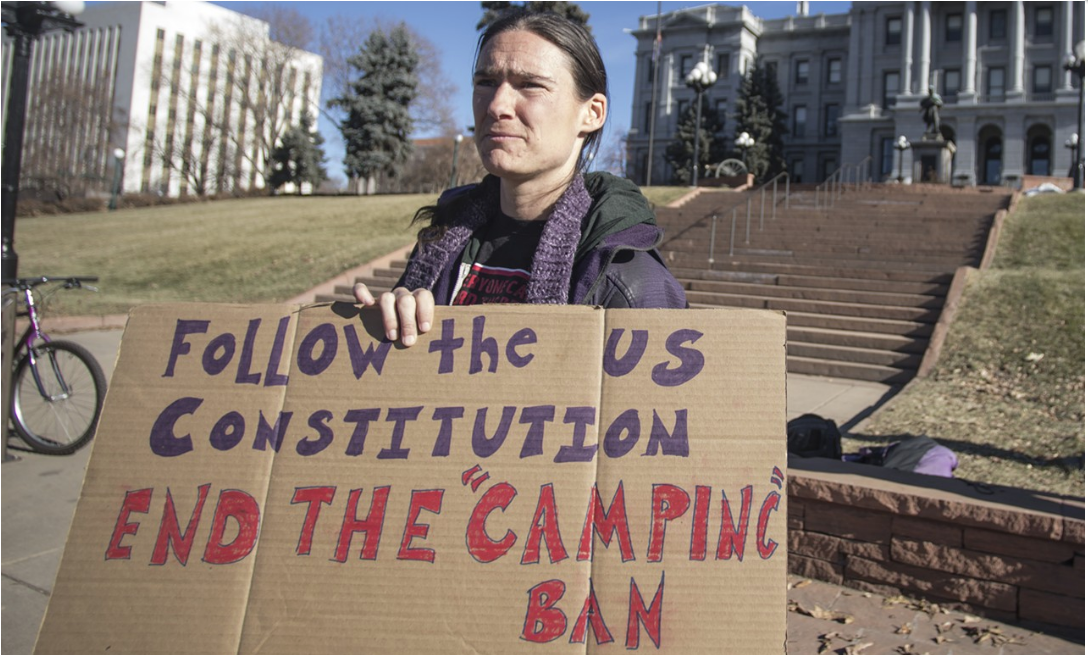
ACLU of Colorado

Audio By Carbonatix
On February 4, a Colorado District Court judge ruled that the charges against Adam Wiemold for violating the Fort Collins camping ban must be dismissed, referencing the fact that “shelter was unavailable” the night when the Fort Collins man was cited.
“It’s great to know that I won’t have to have this on my record based on what I was going through in my life at that time,” says Wiemold. “I’m happy that this case could potentially help other people who are experiencing homelessness.”
In September 2018, Wiemold was sleeping in his car when Fort Collins police cited him for violating the city’s camping-ban ordinance. As the case progressed, Wiemold filed a motion to dismiss the citation, noting that he was employed, but putting his pay to credit-card debt instead of housing. After the Fort Collins Municipal Court denied that motion, Wiemold appealed that decision, leading to the February 4 ruling by Judge Julie Kunce Field of Colorado’s 8th Judicial District Court.
In her decision, the judge noted that Wiemold worked at a local homeless shelter, but couldn’t stay there because of “fraternization rules and to avoid potentially unsafe situations.” She concluded that the prosecution of Wiemold by the City of Fort Collins violated the Eighth Amendment’s prohibition of cruel and unusual punishment, since Wiemold’s homelessness was “involuntary.”
While her ruling won’t bind courts outside of Larimer County, the outcome suggests how attorneys could challenge camping bans across the state.
“The bottom line is that when shelters are full, cities can’t enforce their anti-camping ordinances. They can’t prosecute people for sleeping outside when they have no way to sleep indoors,” says Mark Silverstein, legal director at the ACLU of Colorado, which represented Wiemold. “This decision goes a step farther because the reasoning of this decision is that even if the shelters have some space, the camping ordinances can’t be enforced against people to whom indoor shelter is still unavailable as to their personal circumstances.”
Fort Collins City Attorney Carrie Daggett says the city has not yet decided whether it will appeal the decision, but otherwise declines to comment on the case.
In her ruling, Kunce Field extensively cited a September 2018 9th Circuit Court of Appeals case, Martin v. Boise. As a result of that decision, the City of Boise recently agreed to a settlement that will result in government officials modifying the city code to say that “a person [will] not be penalized if a shelter [cannot] take that person in because of sex, sexual orientation, parental status, or physical or mental needs,” according to the Idaho Statesman.
Like the Martin v. Boise case, Wiemold’s involves a situation in which a homeless individual was unable to access shelters for reasons other than the shelters being full.
Silverstein contends that the Wiemold ruling, which is “persuasive authority” and not “mandatory authority” for courts in Colorado, can absolutely apply to Denver’s camping ban. “The reasoning of this decision would also apply to a prosecution under Denver’s camping ordinance that somebody can’t be prosecuted for sleeping outdoors if indoor options aren’t available to them,” Silverstein says.

Activists are fighting Denver’s camping ban in court.
Evan Semon
Since the City of Denver approved the camping ban in 2012, attorneys have challenged ordinances used by city officials to disperse people sheltering in tents numerous times in court.
In December 2019, Denver County Court Judge Johnny Barajas declared Denver’s camping ban unconstitutional, ruling that although Denver shelters may not be at capacity on any given night, certain categories of homeless individuals don’t have meaningful access to them.
For example, he noted, “Men with children, individuals with serious mental illnesses, persons banned from shelters, unaccompanied homeless youth, individuals with pets, LGBT individuals, and same-sex partners have limited access to shelter.”
In September 2020, however, Denver District Court Judge J. Eric Elliff reversed that ruling. Andy McNulty, the Killmer, Lane & Newman attorney who has been litigating that camping-ban case, has appealed that reversal to the Colorado Supreme Court. While that appeal is pending, the Denver camping ban remains in effect. Meanwhile, in his ruling on a motion for preliminary injunction that McNulty had filed in U.S. District Court of Colorado regarding another case, a judge placed restrictions on the City of Denver’s homeless encampment sweeps. Denver is appealing that decision.
The ruling in the Wiemold case, McNulty says, “should put Denver on notice that camping bans are unconstitutional, generally speaking. This is just another decision closer to home saying as much.”